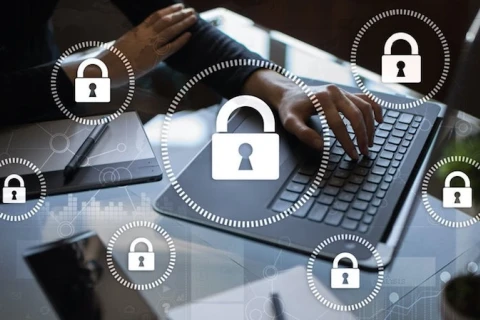The Importance of Website Security
—The negative impacts of breached website security can be immense no matter the size of a business.
By some estimates, it is believed that about 30,000 to 50,000 websites get hacked every day. With the numbers continuing to grow, the importance of website security is increasing rapidly. Being secure in the online world is vital to protect your website and the data it holds now.
In this blog, I will highlight 5 reasons for ensuring your website is secure and what actions you need to put in place to ensure it’s not compromised.
#1 Protect your Customers
Today, most people depend on websites for the various products and services they use on a daily basis. Customers may provide you with their names, credit card information and dates of birth, presenting a goldmine for hackers looking to steal this sensitive information. Protect their information, encrypt it before it is sent anywhere and take internal measures to safeguard this data.
Malicious software is used to infect websites, gather data and in some cases even hijack computer resources. A site where an attacker has gained access can be used to redirect traffic and infect visitors with malicious software, meaning that if your site is not protected, hackers can use your site to infect your site visitors with malware.
#2 Protect your Assets
Securing your website is also a matter of protecting your physical equipment as well. Not only can hackers steal your customer’s information but they can install viruses on your website that could impact your physical machines. Imagine the high costs of having viruses that cripple your systems and then having to hire someone to remove the viruses from your machines or even worse having to replace them altogether because the damage is irreversible.
#3 Protect your Reputation
Securing your website is also crucial for the longevity of your business because a hack could impact your reputation. There could be no worse feeling than having negative publicity due to a major security breach on your website with such negativity potentially hampering your company’s growth.
Avoid this situation by protecting your website so that the public continues to view you as a trusted name in your industry.
#4 Prevent a loss in Revenue
A hack can also lead to massive amounts of downtime and loss of productivity. This translates into sales that you could be missing out on. Any business owner understands the importance of continuous sales to ensure the viability of your business. In short, unprotected websites threaten not only the security of the company, but its very existence since loss of too many sales could result in the business having to close its doors for good.
When your site is hacked and potentially added to different blacklists, your customers won’t be able to reach the products or services you offer.
#5 For Peace of Mind
Lastly, running a business is hard enough without the constant worry of a cyber-attack. While you may not be able to beat all the bad guys you can certainly deter them from attacking your company by putting protections in place that stop them in their tracks. Have peace of mind in knowing your website is properly secured and that you are putting added measures in place to protect what you have built.
So, while cyber criminals always pose a threat to businesses you can decrease the odds of this happening to you by putting proactive measures in place to secure your online presence.
The easiest approach to web and cyber-security is “security by obscurity”. In other words, simple changes that make the attractiveness of your site to hackers less appealing. Changing well-known system defaults, ensuring strong passwords and reminding people to always be on their guard that if something feels too good to be true or sounds slightly spurious, it probably is. For most companies, these simple practices are your first and best lines of defence that are quick and low cost to implement.
Tips to keep your site secure:
SSL Certificate
Your website should have a security certificate (SSL) installed by default, but be aware, this does NOT encrypt your server. It simply encrypts the data transferred between your website visitor and the server. It protects communications in transit. If you collect personal information from visitors to your site it will be encrypted, but if you then email it to yourself, it won’t be.
Having a valid SSL certificate on your site is also a ranking factor for search engines.
Keeping your software up to date
In these times of rapid change, software dates quickly so it’s vital to keep your systems and website patched with the latest releases. Threats are ever-changing and hackers will always find inventive approaches to breach your defences. Keeping your software up to date is one way to reduce the risk and circumvent their attempts.
Andrew Armitage talks to A Digital developer Matt Shearing about the importance of keeping a website up to date and why security should be high up on your list of priorities as a website owner.
Have a listen
